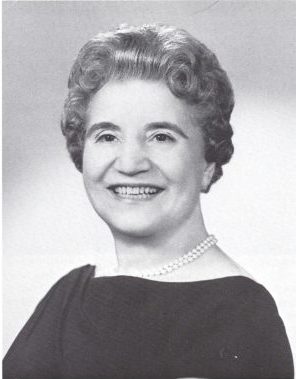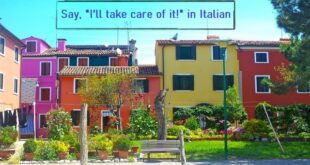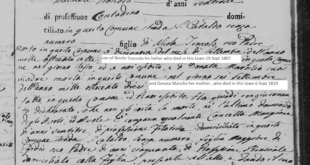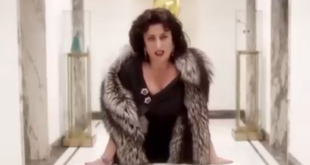 May has always meant Mother’s Day as well as the May Crowning of Mary, the Blessed Mother. Of course, those feelings are based in memories of how attending St. Anthony’s School shaped me into the man I am today. I am sure the same sentiment can be expressed by many of today’s men and women who had their early childhood’s formed by the Sisters of St. Joseph and the Scalabrinian priests of St. Anthony of Padua Parish in the Kensington/Pullman neighborhood of Chicago’s Roseland community. All the priests left an impression on the nuns as to how our Catholic learning was to proceed. I’d say they all worked quite well in unison to instill a good foundation as the basis for our lives.
May has always meant Mother’s Day as well as the May Crowning of Mary, the Blessed Mother. Of course, those feelings are based in memories of how attending St. Anthony’s School shaped me into the man I am today. I am sure the same sentiment can be expressed by many of today’s men and women who had their early childhood’s formed by the Sisters of St. Joseph and the Scalabrinian priests of St. Anthony of Padua Parish in the Kensington/Pullman neighborhood of Chicago’s Roseland community. All the priests left an impression on the nuns as to how our Catholic learning was to proceed. I’d say they all worked quite well in unison to instill a good foundation as the basis for our lives.
Among those who had their early schooling at St. Anthony’s Grade School are Leno and Mary Santacaterina. Their parents, Vincenzo (Cenzo) and Amabile, were very active in our parish community. Both were members of the Chiuppanese Roseland Operetta Club and took part in many of their operas. As a matter of fact, the tall and handsome Cenzo was the director for a number of the ROC productions.
By 1936, Amabile and Cenzo had arrived in America in January or February of 1928 and moved to Roseland’s Kensington neighborhood. While they lived there, Leno and Mary attended St. Anthony’s grade school with many of their neighborhood friends. Leno even began caddying at Olympia Field’s Country Club with his friends.
Amabile had begun working on a radio program and had quite an audience of Italian Americans that listened in order to to maintain contact with the land and culture they had left behind. As time went on, her audience grew along with her radio skills. It was at this time that the family moved from Kensington to be closer to the radio station for ease of transportation. Leno was 10 years old and Mary was 8 when the family moved to Belmont and Harlem. Despite the distance and his young age, Leno took public transportation to visit his Kensington friends every weekend and to continue caddying with them.
Amabile and Cenzo were such a part of Kensington and the Roseland Operetta Club that they would visit the neighborhood every other weekend and stay at Cenzo’s sister’s house. To this very day, Kensington’s former residents still remember seeing the family around the neighborhood and at all the Roseland Operetta Club functions.
By the time World War II came along, Amabile had been involved in an Italian radio program for four or five years. When Mussolini entered the war on the side of Germany, Amabile and Cenzo, who were always staunch anti-fascists, were able to express their sentiments more freely. Amabile was given more radio time for a program of her own, which eventually grew to an hour long.
It was while working on this program that she began a segment during which she read letters from mothers to their boys in service or letters from service members to their families. This led to Amabile beginning a relief effort of sending “care” packages to Italian towns ravaged by war.
When Amabile began her program of reading letters from mothers to their sons, it was a joy for her to be able to help those mothers, who missed their sons and prayed for their wellbeing. However, when her son Leno joined the military and was assigned overseas, the effort took on new meaning in her heart.
The reality shook Amabile and she spent the entire night writing a letter to her son. Cenzo had to force her to go to sleep, she was so heartbroken and troubled by the fact that her son was overseas. She had spent many months reading of the sorrows other mothers expressed in having their sons taking part in the active war fronts and now, all those feelings and fears she had read for those mother arose within her. The next day, she read her letter on the air even though she thought it was of little consequence. However, everyone in the studio told her how beautiful it was and her listeners told her how they had cried when they heard her words and each word touched their hearts.
Amabile’s relationship with Mary and Leno was such that she always did her best to place them first, no matter what obligations she had. When she and Cenzo were advised to help Mary by sending her to a boarding school in LaGrange, they made the necessary sacrifices for her. After a year and a half, Mary returned as a refined young woman, appreciative of their sacrifices.
When Leno went into the service and Cenzo and Amabile made the sacrifice of separation that so many Italian-American parents had to make, their sacrifice was remembered. After many months of Leno being in the service, as Amabile was finishing one of her broadcasts, the announcer ended with “Listen again tomorrow to the Community Hour Women Club, with Amabile Santacaterina, who is now getting a big surprise.”
As she turned toward the door, Amabile could see Mrs. Pucenski who had the next program at 11 a.m. and behind her was Amabile’s son Leno, home on leave. Leno showed is appreciation for his mother’s sacrifice by surprising her and returning to her safe and sound. Amabile was so happy and proud of Leno’s return that she and a number of ladies from her Italian relief project joined them as they went for coffee to celebrate.
Leno and Mary remember their mother, Amabile, and have shown their appreciation throughout their lives for the wonderful and inspiring woman she was to the members of Chicago’s Italian-American community at a time when they needed strength and courage to carry on through the war years.
After the war, Amabile continued working at the radio station until 1960, at which time she and her children started to package the Italian delicacies she created as a gourmet cook. She labeled her foods, “Mrs. Belgo” — from “belgodere,” meaning “beautiful enjoyment.”
Mrs. Santacaterina published her autobiography in 1992 in Vicenza, Italy. Information for this article also came from a thesis paper done by her granddaughter Judy Santacaterina and from the book “Italian Women in Chicago Madonna mia! QUI debbo vivere?” published by the Italian Cultural Center at Casa Italia. All of the materials are available at The Florence Roselli Library at Casa Italia.
Contact me at 11403 S. St. Lawrence Ave., Chicago, IL 60628, 773-701-6756, or cjfranoi@yahoo.com
 Fra Noi Embrace Your Inner Italian
Fra Noi Embrace Your Inner Italian







Great article Thanks Happy Easter Jeanne